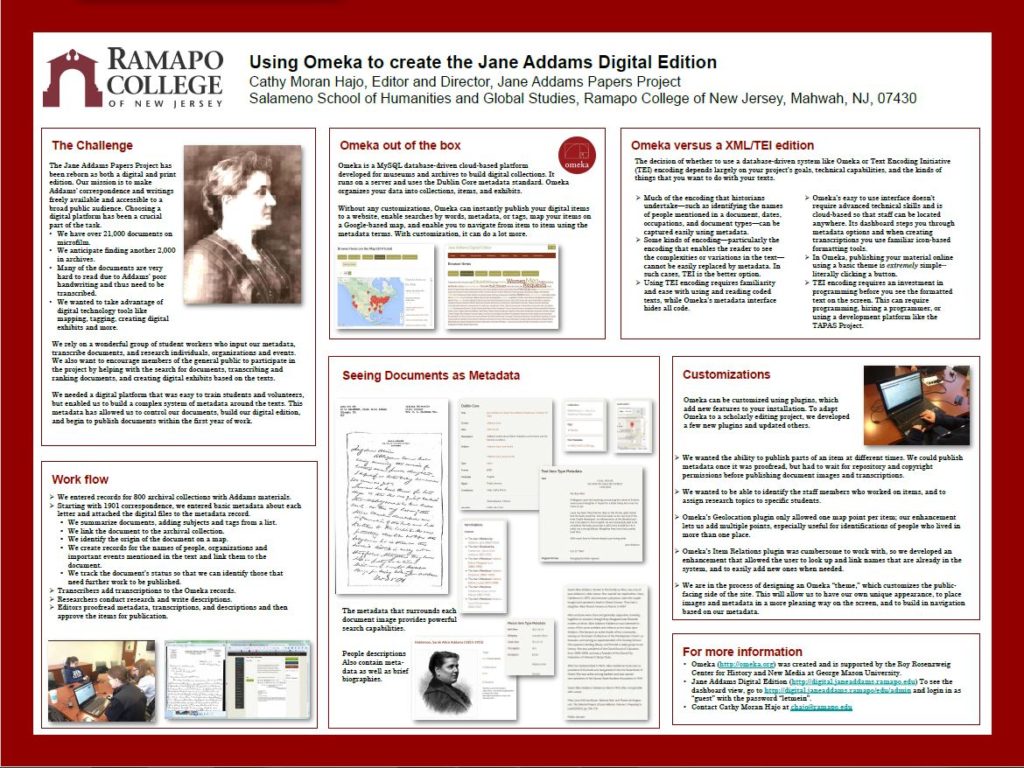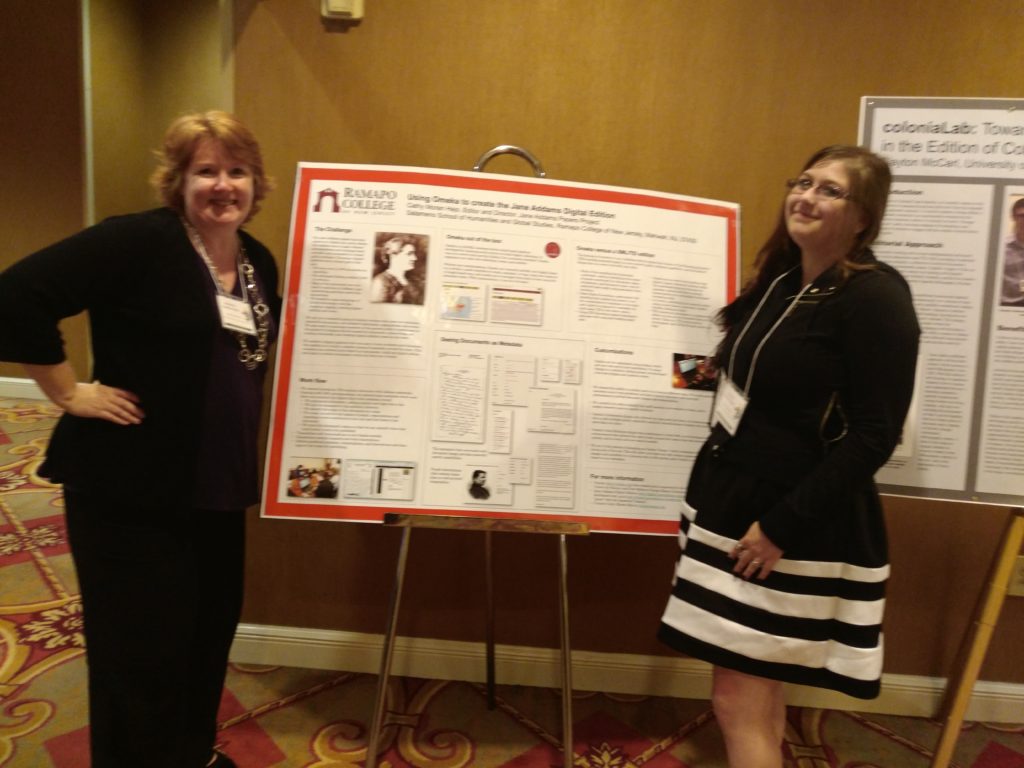
At the recent meeting of the Association for Documentary Editing, held August 4-6 in New Orleans, Louisiana, I participated in “New Approaches to Publishing Editions, a panel that explored the diverse ways that projects are putting their documents online. Each panelist talked for a short time, and then we displayed posters and demonstrations of our platforms and tools. Joining me on the platform was Jennifer Stertzer, the chair (Washington Papers), Ben Brumfield (Brumfield Labs), Ondine LeBlanc (Massachusetts Historical Society), Erica Cavanaugh (Washington Papers), M. Safa Saracoglu (Bloomfield University), and Clayton McCarl (University of North Florida).
Representing the Jane Addams Papers, my poster outlined the project’s use of Omeka, a content management platform designed by the Roy Rosenzweig Center for History and New Media to create digital archives and exhibits for small-scale museums and archives. Omeka was a good choice for the Jane Addams Papers because we are digitizing a large number of documents (over 20,000), including letters, articles, speeches and reports from 1901-1935.
The challenge for the Addams Papers was to develop a system simple enough for undergraduate student workers to use, while also building complex connections between the documents using descriptive metadata. We wanted to be able to publish documents online easily and flexibly, without having to learn to program. Omeka fit our needs well, and allows us to transcribe the documents, making them searchable.

We also needed a system that would enable us to manage permissions and copyright clearance. For 20th century documents, permissions are complex–not only do we need the permission from the owners of the manuscript, but we also need the authors or their heirs to grant permission for all documents published after 1922. For unpublished documents, authors fall into the public domain if they died more than seventy years ago–before 1946, but if they died later, we need to locate and secure permission from their heirs. In eleven months’ work, we have already entered the names of more than 2,000 individuals and organizations. While we don’t have to clear permission for all of them (many are only mentioned, or received letters, but did not write them), there are plenty that we do need to clear and we needed our digital platform to be able to track permission status.
We also want to build a digital edition that can take advantage of emerging digital humanities tools. We are currently able to generate maps and subject indexes directly from the Omeka database, and are tracking relationships between individuals, documents, events, and organizations.
Out of the box, so to speak, Omeka offers great possibilities. It maintains complex relationships between the different items that we include–tracking the authors, recipients, and people mentioned in documents, relating the drafts and similar versions of documents to one another, linking enclosures to their letters, while also letting them appear as their own documents.
One of the most useful features of Omeka is that it is open-source and can be extended with plugins. This means that the plugins we develop for use at the Addams Papers can be shared with other projects that are interested in the same kinds of functions. We already have plans to share our publishing, mapping, and relations improvements with the Franz Boas Papers.
We will be posting a more in depth exploration of how the project uses Omeka on the digital edition site in the near future.
Cathy Moran Hajo is the Editor and Director of the Jane Addams Papers Project at Ramapo College of New Jersey. She is an experienced scholarly editor, having previously worked for over 25 years as Associate Editor at the Margaret Sanger Papers at New York University. Dr. Hajo received her Ph.D. in history from New York University in 2006, and is addition to her work on the Sanger Papers, published “Birth Control on Main Street, Organizing Clinics in the United States, 1916-1940,” in 2010.
Her teaching interests include scholarly editing and digital history, and she currently teaches for the Institute for Editing Historical Documents, the Digital Humanities Summer Institute. She teaches a digital history course at Ramapo College.

